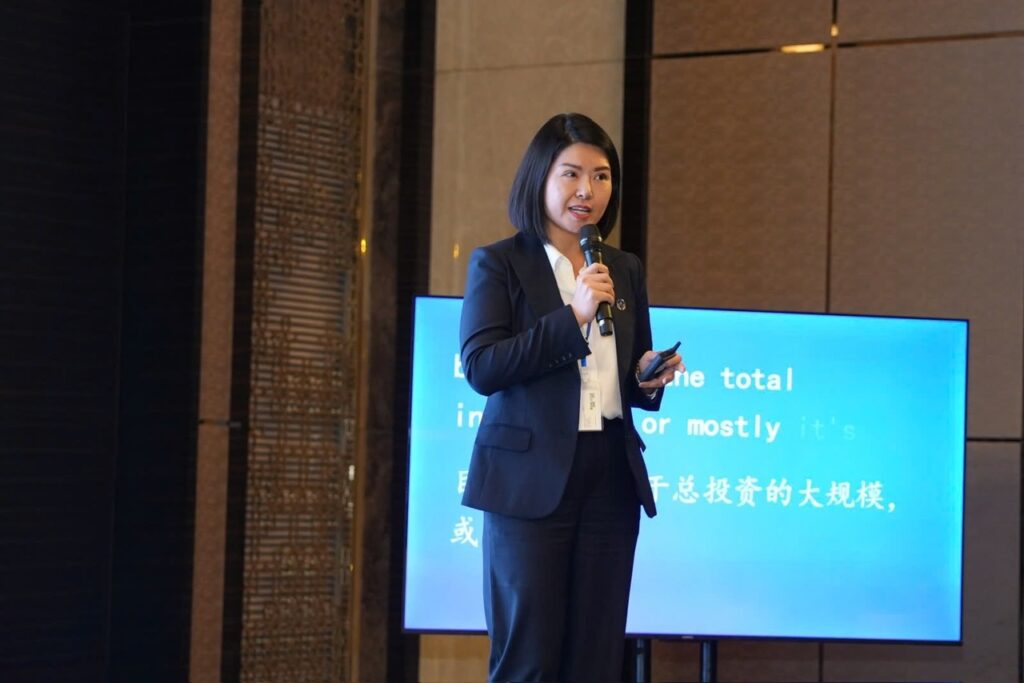Issue December 2024

Quoc Tran
Partner |

Nguyen Ngoc Ly
Senior Associate |
Consumers have always been a crucial demographic that drives socio-economic development in any country. Consumer rights protection therefore should be a priority, as it serve as a key resource and driving force for enterprises’ sustainable business growth. However, in practice, consumers often face disadvantages in transactions involving goods and/or services with enterprises or individuals due to the lack of information or optionality. This situation creates an imbalance of rights, adversely affecting consumers. Hence, the legal framework must be adjusted, and State surveillance is required to ensure a balance of interests among consumers and organizational and/or individual businesses, thus helping to ensure fair treatment for consumers, granting them access to accurate information and protection against illegal business practices.
The revised Law on Consumer Rights Protection was approved by the 15th National Assembly on June 20, 2023, and took effect on July 1, 2024 (the “2023 Law“), replacing the Law on Consumer Rights Protection No. 59/2010/QH12 (the “2010 Law”). These amendments aim to align with global trends and international legal standards, updating and refining the regulations in the Law, which consists of 7 chapters and 80 articles, adapting to modern consumption and business trends. Additionally, Decree No. 55/2024/ND-CP, issued on May 16, 2024 and taken effect from July 1, 2024 (“Decree 55“), replaces Decree No. 99/2011/ND-CP and focuses on consumer rights protection in the digital environment, safeguarding vulnerable groups, and organizing Vietnam Consumer Rights Day. The goal of these amendments is to enhance consumer rights protection in the context of Vietnam’s broad and rapidly growing consumption market, particularly during the Fourth Industrial Revolution (4IR), which is characterized by the rise of technologies such as AI, blockchain, and the Internet of Things (IoT).
A. KEY POINTS OF THE REFORM
1. General Provisions
a. Scope of Application
The 2023 Law expands its scope of application (Article 2) to include the Vietnam Fatherland Front, socio-political organizations, and social organizations. Notably, for cross-border and online transactions, the Law is also applicable to foreign agencies, organizations, and individuals relevant to consumer rights protection. The definition of “consumer” (người tiêu dùng, in Vietnamese) in the 2023 Law (Article 3.1) now includes the phrase “not for commercial purposes” to emphasize its focus only on the consumption of goods and services. However, the 2023 Law keeps the term “person” (người, in Vietnamese) to define consumers, leaving ambiguity about whether organizations or household businesses can be considered consumers.
b. Influencers
The 2023 Law introduces new definitions for “influencers” (Article 3.9), which is clarified in Article 2.1 of Decree 55. An influencer is construed as an expert, a prestigious individual, or someone receiving societal attention in a specific field, sponsored by organizational and/or individual businesses for the use of their images, advices, or recommendations to promote commercial activities or encourage consumption. Specific cases include (i) experts or experienced individuals recognized by competent authorities or organizations in specific fields or industries; (ii) prominent or prestigious individuals with notable contributions and societal acknowledgment, certified by competent agencies or organizations; and/or (iii) individuals attracting societal attention or a significant number of followers, particularly on social media or digital platforms, qualified for engaging in advertising or online business. This regulation aims to ensure transparency in the role of influencers in advertising activities and to protect consumer rights in the modern business environment.
Additionally, under Article 22 of the 2023 Law, influencers are vested with the following obligations:
- Provide accurate and complete information about products, goods, and/or services to consumers and request organizational and/or individual businesses for evidentiary documents of the information.
- Bear joint liability for any inaccurate or incomplete information provided, unless they can prove that all reasonable measures were taken to verify the information.
- Notify consumers of sponsorship to provide information on products, goods, or services.
c. Vulnerable consumers
The concept of “vulnerable consumers” draws inspiration from legal frameworks in other countries – particularly developed ones – and standards set by international organizations like the United Nations and the Organization for Economic Cooperation and Development (OECD), whose laws and regulations have been established with standards for protecting vulnerable consumers. The term is defined in Article 8.1, aiming to safeguard seven groups of consumers that are potentially disadvantaged in consumption transactions, such as the elderly, disabled, children, pregnant women, populations in remote or challenging areas, etc. At the same time, Article 8 requires organizational and/or individual businesses to prioritize protecting vulnerable consumers’ rights during transactions, ensuring their ability to file complaints and resolve disputes. Traders must receive and address protection requests from these groups directly and may not transfer them to third parties unless such third parties hold relevant responsibilities.
If there is any delay, refusal to prioritize, or denial of such requests, traders shall compensate vulnerable consumers pursuant to civil law (Article 8.2). Traders shall also develop and publicize procedures to protect the rights of this consumer group, safeguarding the right to file complaints, resolve disputes, and publicizing these at their headquarters, business locations or on websites and/or applications (Article 8.3).
d. Specific transactions
Compared to the 2010 Law, the 2023 Law provides detailed explanations for specific transactions (Article 3.8), aiming for consumer protection in the context of 4IR, including:
- Remote Transactions: transactions conducted via networks, electronic means, or other methods where consumers cannot directly inspect goods and/or services prior to transactions (Article 3.5);
- Continuous Service Provision: services provision for a term of three months or longer or for an indefinite term, such as telecommunications, internet, cable television, etc. (Article 3.6);
- Direct Sales: organizational and/or individual businesses actively reaching out to consumers to promote and sell products and/or services through: (i) Door-to-door sales: selling products and/or services at consumers’ residences or workplaces; (ii) Multi-level marketing: selling goods through a multi-level network where participants earn commissions from their sales and those of others in the network; and (iii) Sales not conducted at regular transaction locations: selling goods and/or services at locations that are not fixed retail outlets (Article 3.7).
The 2010 Law, through Decree No. 99/2011/ND-CP dated October 27, 2011 (“Decree 99”), has previously provided the concepts of “Distance contracts”, “Continuous service contracts,” and “Door-to-door sales” (Article 3 of Decree 99), however, the earlier legal framework focused primarily on traditional transactions. On the other hand, the 2023 Law adapts to the new trends by emphasizing remote and online transactions, fulfilling the needs of consumer rights protection in the digital era, and helping to reduce risks when conducting transactions where they cannot inspect products and/or services firsthand.
e. Prohibited acts
Article 10 of the 2023 Law details and expands the list of prohibited acts in consumer rights protection, adding the following in particular:
- Failing to compensate, refund, or exchange products, goods, or services to consumers due to mistakes of organizational and/or individual businesses, or when the products, goods, or services are inconsistent with the registered, disclosed, listed, advertised, introduced, or committed information.
- Committing bait-and-switch or fraudulence involving products, goods, or services during goods delivery or service provision to consumers.
- Failing to notify in advance of sponsorships towards influencers for use of their images, advices, or recommendations to promote commercial activities or encourage consumption of goods and/or
- Preventing consumers from inspecting products, goods, or services unless otherwise stipulated by law.
- Requesting consumers to purchase additional products, goods, or services as a precondition for contract conclusion contrary against their wills.
- Including unlawful terms in contracts with consumers, model contracts, or general trading conditions.
- Illegally collecting, retaining, using, modifying, updating, or destroying consumer information.
The 2023 Law also lists additional prohibited acts of specific nature for multi-level marketing and establishment, operation and/or service provision of digital platforms, such as:
- Multi-level marketing (Article 10.2): requiring deposits or product purchases to join the network; providing false information; operating without certification; multi-level marketing for services or forms that are not sales of goods; developing the network not through sale of goods transactions. In which, several acts mentioned are similar to Decree No. 40/2018/ND-CP on managing multi-level marketing businesses (“Decree 40”);
- Digital platforms (Article 10.3): coercing or preventing consumers from using other intermediary platforms as a precondition to services usage; restricting product optionality without disclosing selection criteria; misrepresenting consumer feedback on products and/or services; preventing registrations or reviews from consumer protection organizations; preventing software removal or requiring unnecessary software installation.
2. Rights and obligations of consumers
The 2023 Law enhances the role of consumers in modern consumption context, as well as ensuring balance between their rights and obligations. The new consumer rights include the right to protection of dignity, honor, and information (Article 4.1), the right to choose a healthy and sustainable consumption environment (Article 4.9), and the right to protection when using public services under regulations of the law (Article 4.10). In addition, Article 5 introduces obligations of consumers, including compliance with conditions, guidance regarding the transportation, preservation, and use of products, goods, or services; regulations on inspection, environmental protection, sustainable consumption (Article 5.3), and obligations in providing information related to transactions between consumers and organizational and/or individual businesses (Article 5.5) and other obligations as required by law.
3. Specific transactions
a. Remote transactions
The concept of “cyber transactions” is mentioned within “remote transactions”, in which organizational and/or individual businesses in cyberspace include (Article 39.1 of the 2023 Law):
- Organizational and/or individual businesses selling products, goods, or services via their established information systems or digital platforms;
- Organizations establishing and/or operating intermediary digital platforms.
While the 2023 Law does not define “digital platform” or “intermediary digital platform”, this Law continues to provide regulations related to organizational and/or individual businesses selling, establishing and/or operating “digital platform” provisions, including a list of prohibited acts (Article 10.1, Article 10.3), responsibilities towards consumers (Article 38, Article 39 of the 2023 Law; Article 22, Article 23 of Decree 55). Additionally, Decree 55 later introduces the concept of a “large digital platform” as a platform servicing electronic transactions that satisfies one of the following criteria: (i) having at least 3 million active user accounts annually in Vietnam, and organizational and/or individual businesses shall self-determine their user account numbers; (ii) being an intermediary digital platform of large or very large scale facilitating electronic transactions.
b. Continuous service provision
In Section 2, Chapter III of the 2023 Law, the responsibilities of organizational and/or individual businesses providing continuous services and the contract form for this mode of service are respectively detailed in Articles 41 and 42 of the 2023 Law, with key points including:
- Organizational and/or individual businesses providing continuous service in Vietnam must disclose information on their legal representative in Vietnam. If there is no legal representative, they must appoint an authorized representative and publicize the information thereof. This representative must implement the provisions of the consumer protection laws. However, this regulation may leave room for ambiguity in the course of regulation enforcement, posing challenges for organizational and/or individual businesses when applying in specific cases such as: whether it is application for organizations with business presences or foreign organizations; and the role of the authorized representative (whether it is personnel of the organization or an individual appointed through an authorization agreement?), etc.
- Organizational and/or individual businesses providing continuous service, under contracts, must notify consumers of (i) paying fee to continue use of service, at least 07 working days before the end of service term; (ii) contract expiration, at least 07 working days before the contract expires.
b. Direct sales
i, Multi-level marketing
The 2023 Law puts the definition of “multi-level marketing” under the category of “direct sales” (Article 3.7.b) and the obligations of organizations and individuals conducting multi-level marketing. However, except for new obligations regulated in Article 45, the 2023 Law largely aligns with those currently remaining in effect of Decree 40. However, since the 2023 Law applies to multi-level marketing sellers in their relationship with consumers, unlike Decree 40 which applies to all multi-level marketing sellers, there are potential overlaps of obligations imposed on multi-level marketing sellers.
ii, Sales not conducted at regular transaction locations
The 2023 Law introduced a new concept of “sales not conducted at regular transaction locations” (Article 3.7.c), including the presentation and sale of products, goods, or provision of services at venues that are not fixed retail locations where products, goods, or services are regularly sold or provided.
According to Article 47, organizations, individuals doing business at temporary venues, when selling goods, providing services with a total value exceeding VND 10 million must comply with:
- Notification to the commune-level People’s Committee: Provide detailed sales organization information, including methods, dossier, and the responsibilities of the People’s Committee as guided by Articles 26 and 27 of Decree 55. The forms for notification and for amendments and/or supplements are provided in Annexes 10 and 11 of Decree 55.
- Publicly displaying information at the sales location.
- Maintenance of contact information for grievance redressal during and after the transaction.
- Provision of complete and honest information about the products, services, and business organizations.
- Acceptance of returns within 30 days, provided that items remain intact with seals, labels, packaging, and within their expiration dates.
- Issuance of bills and/or invoices for every transaction.
- For written contracts, a copy must be sent to consumers, who have 03 working days to perform or terminate the contracts then notify the other party; during which no deposits, payments or performance may be required unless otherwise specified by law.
4. Dispute resolution mechanisms
The 2023 Law retains four mechanisms for resolving disputes between consumers and organizational and/or individual businesses including negotiation, mediation, arbitration, and court proceedings.
a. Negotiation
Regarding negotiation, the 2023 Law additionally establishes the right for consumers to request assistance from state management authorities and consumer protection organizations to negotiate when their legitimate rights are violated (Article 56.3). This provision seeks to enhance the effectiveness of negotiation in dispute resolution between consumers and organizational and/or individual businesses. Additionally, the 2023 Law introduces more explicit provisions on the format of negotiation, allowing it to be conducted online to accommodate modern technological trends, thereby facilitating convenience and efficiency for the parties involved (Article 54.3). It also supplements detailed procedures, timelines, and obligations of the parties during negotiation, reducing arbitrariness and enhancing accountability (Article 57), while clarifying the rights and obligations of the parties engaged in negotiation (Article 59).
b. Mediation
The 2023 Law, while not explicitly defining “mediation” as the 2010 Law did, references other laws such as the Law on Grassroots Mediation, the Law on Mediation and Dialogue at Court, and the Decree on commercial mediation. The 2023 Law supplements a new prohibition of mediation in cases involving commitment of legal prohibitions or violation of social ethics (Article 54.2). Mediators must possess the necessary competence, moral characters, and mediation skills; especially, there must be suitable mediators for disputes involving ethnic minorities (Article 64). The 2023 Law mandates the preparation of a written agreement acknowledging the outcome of a successful mediation, with detailed requirements for its contents. If negotiation is unsuccessful, no documentation is required (Article 65). The Law also establishes a mechanism to recognize the outcome of a successful mediation and imposes obligations to fulfill the terms within the agreed timeline (Article 66). Collectively, these refinements in the 2023 Law provide greater regulatory clarity, enhance the effectiveness of mediation, and safeguard the rights and interests of all parties involved.
c. Court proceedings
For dispute resolution through court proceedings, the 2023 Law improves the regulations on expedited proceedings applicable to civil cases involving consumer rights protection, to be specific, cases with transaction value under VND 100 million (~$4,000) (Article 70.2) are eligible for expedited proceedings without the need for fulfillment of conditions under Article 317.1 of the 2015 Civil Procedure Code. Damages awarded in civil cases involving consumer rights protection initiated by social organizations for public interest, to which a specific beneficiary cannot be identified, will be allocated to general activities benefiting consumers as per Government regulations or submitted to the state budget (Article 73.2 of the 2023 Law). If a social organization initiates a lawsuit involving multiple provinces, compensation is allocated to the central budget; for single-province cases, it is allocated to the local budget (Article 28 of Decree 55). These updates reinforce the role of social organizations in consumer rights protection, ensuring fairness and transparency in managing awarded damages.
B. CONCLUSION
The 2023 Law on Consumer Rights Protection and Decree No. 55/2023/ND-CP mark significant advancements in protecting consumer rights in Vietnam. Enacted amidst the 4IR with rapid technological growth and the rise of digital transactions which deeply affects consumer rights, the two instruments illustrate significant improvements over previous regulations.
The 2023 Consumer Protection Law has broadened the scope of protection, especially for consumers in electronic transactions and e-commerce, while previous regulations mainly focused on traditional transactions. The 2023 Law also clarifies the responsibilities of organizations and individuals in the provision of goods and/or services and ensures the quality and safety for consumers, as well as enhancing the role of consumer rights protection organizations, contributing to fostering consumers’ trust for them to gain accessibility of legal support upon violations of rights and interests. The 2023 Law mandates that organizations and individuals providing goods and/or services ensure transparency of information, while simultaneously assuming responsibility for protection of consumers’ personal data and preventing breaches of privacy. These provisions keep up with the growing emphasis on information security in an increasingly digitalized world.
Furthermore, Decree No. 55/2023/ND-CP supplements enforcement mechanisms and provides detailed regulations on matters such as grievance redressal, dispute resolution, and measures to address violations related to consumer rights protection. This Decree clarifies the responsibilities of state management authorities, organizations, and individuals in supporting and resolving disputes concerning consumer rights; as well as the processes for handling complaints and disputes arising in online transactions.
Overall, the systematic upgrade of the laws on consumer rights protection in 2023 reflects the alignment of legal framework with the development of the digital economy, representing a significant step forward in enhancing consumer rights protection and adapting to the transformative changes of the 4IR era.
Download pdf version
























